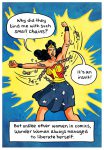We’re doing this again, only this time I’m planning ahead a bit more. At 3pm Central, I’ll be hosting a few more of the bloggers on this network — exactly who will be a surprise.
We’ll go live at 3 or thereabouts. I think you can also do a text chat here with us.
Our guest was Matt Herron of Fierce Roller, and we talked about the evolution of multicellularity (a very cool subject — he works on Volvox, which is right there on the boundary between colonial and multicellular organisms), a little bit about weird creationist ideas, and a bit about social justice in the science community. Check out his blog!



